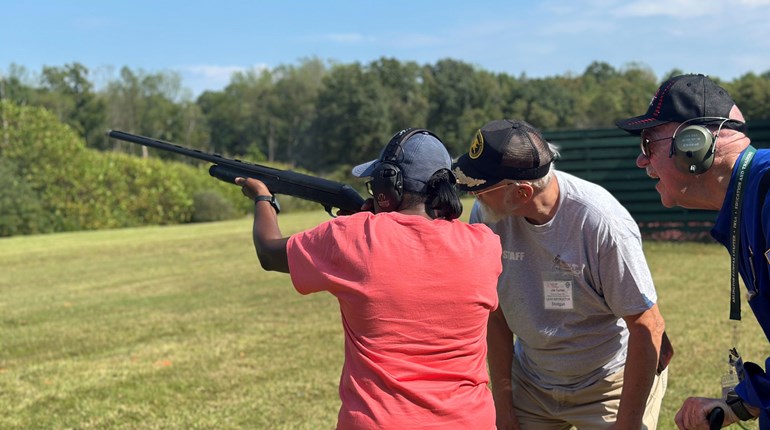
This is a tough article to write, because the subject is so sensitive, and it’s so easy to veer off into victim-blaming, which is the last thing I want to do. But bear with me while we dig into the topic of the presumption of safety and what taking responsibility for your own safety really looks like.
First, a definition. Many of us, especially if we are fortunate enough to have never experienced being a victim of crime, abuse or serious trauma, exist in the world feeling relatively safe. Even many women who have been victimized in this way have gotten to a point where a feeling of safety is their default, and they only feel fear when they have a particular reason to. Most of us assume we are safe in our homes, in the grocery store, at school, with our friend group, with our domestic partner, etc. And for most of us, we genuinely are safe in those circumstances.
The problem comes in when we extend that presumption of safety to other places, times, circumstances and people who haven’t yet proved themselves worthy of our trust. You can’t let your “I’ve always been safe before” attitude lead you into unsafe behavior.
What do I mean? You’re really comfortable with your boyfriend or husband, right? So comfortable that you sometimes speak to him in a way you might not normally speak to other people. He respects you, so if your language is a bit out of character now and then (say after a few drinks), you face no serious consequences. In fact, none of the men you know would ever strike a woman—your dad, your brother, your male friends. It simply isn’t done in your culture. We can all get away with a certain amount of mouthing off because we know we’re safe with the people in our lives.
Trouble is, this doesn’t mean you’re safe to run your mouth everywhere. There are men in the world who have no problem reacting physically to a woman, so just because you’ve never faced consequences for some off-color language, you might be in for a terrible surprise at the bar one night when you forget that your culture isn’t everyone’s culture. Your presumption of safety was misplaced.
The “Should” Worldview
And this leads me to the “should” worldview. To keep yourself safe, you must recognize your presumption of safety doesn’t extend to every place, every time and every crowd. It’s easy to think that you “should” be able to do what you want, when you want, without being concerned for your safety, but the world just doesn’t work that way.
Example: Every time a news site publishes an article about a rape, particularly a date rape or one involving a beautiful young woman, the comment section quickly fills up with this series of statements:
“Why was she out that late/with that guy/dressed that way/so drunk in the first place?”
“That’s victim shaming! How dare you!”
“But we have to do better teaching young women how to stay safe!”
“You pig. How about we just teach young men not to rape women?”
OK, let me perfectly clear: Absolutely nothing any woman does, says, wears or thinks justifies any crime against her. There is no excuse—none—for sexual assault or other crimes, and if you have ever experienced this, nothing you did caused it. Rape just should not ever happen.
Tragically, we don’t live in a perfect world, and it still does happen. People do things they shouldn’t all the time. And comment number 4 above is a perfect demonstration of the “should” worldview run amuck. While it’s not wrong—we absolutely do need to work hard at teaching people how to treat people—it’s also not a wholesale solution to the problem of crime. If you think it is, you’ve fallen into the “should” worldview. And if you live your life without taking reasonable safety measures because you should be able to enjoy freedom and other people shouldn’t harm you, you’re putting yourself in danger.
Unfortunately, the world is a brutally unfair place. For safety’s sake, you must live in the world as it is, not as it should be or as you wish it were.
You should be able to walk home alone at 2 a.m. through dark alleys. No one should bother you if you do so. Regardless, this isn’t a good idea.
You should be able to get drunk at a frat party by yourself and rely on some kind stranger to let you sleep it off on the couch, because boys should be taught not to take advantage of vulnerable women. But this still isn’t a good idea.
You should be able to leave your drink on the bar with the cute new guy you’ve been talking to while you duck into the ladies room, because no one should ever mess with someone’s drink. But you don’t, do you?
You should be able to leave your car unlocked and your wallet on the dashboard in a parking lot because no one should take other people’s stuff. But in many places, this is asking for trouble.
You get the idea. All of these precautions we have to take are downright unfair, and you know what? That sucks. We shouldn’t have to worry about this stuff. We as women shouldn’t have to think about our personal safety so much. We should be able to extend our presumption of safety to every situation. But unfortunately, you know as well as I do that we can’t. The world will always have a criminal element in it, and there will always be men and women who should behave one way but choose to mistreat people instead.
The “should” worldview is idealistic, but it comes from a place of hope, and it’s not a bad thing. As parents, we certainly can and should raise our children to treat people with respect. As a society, we can and should look for the best in people and set high expectations for behavior while re-educating and rehabilitating those who want to do better or never learned the right way. We just can’t be naïve enough to let the “should” worldview be the beginning and the end of our personal safety measures. Check your presumption of safety, be mindful of how, when and where it applies, and take reasonable (if unfair) precautions to help keep yourself safe while living in the world as it actually is, not as it should be.














































